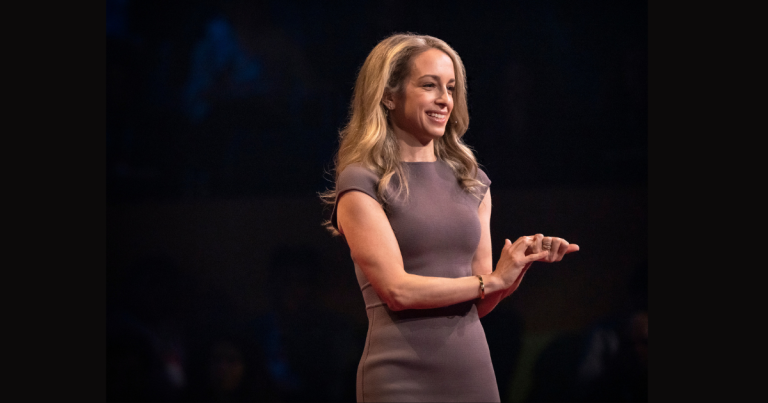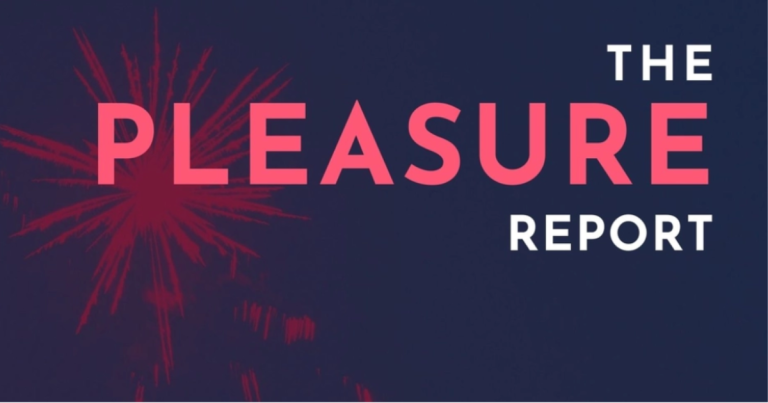Data show what I am witnessing in my practice—an influx of depressed, anxious, insecure, suffering clients from around the globe. In fact, I don’t think there has ever been a time in humanity when humans felt so bad about themselves for not being perfect. Living in our modern day performance-driven, goal-oriented society of perfectionism is great for consumption but horrible for eroticism. And indeed, horrible for self-esteem and self-worth too.
Experts say we have approximately 70,000 thoughts a day. Which ones do you jump in the car with and take a ride? Which ones do you choose to just let pass? It’s when we take a road trip with self-doubt and those pesky negative thoughts, that they spin into feelings which turn into action, and inevitably express themselves in our bodies. Whether it’s anxiety, chest pains, acne, disease, or even sexual function, our body is the first alarm bell ringing to inform us—somethin’ ain’t right.
Take for example, my gay client who is gorgeous, kind, brilliant, witty, and wildly successful. When we met, his erectile dysfunction only occured when he was with someone he liked and wanted to keep dating. Prescription drugs didn’t fix the problem. That’s when he sought me out for help.
The catch, however, was that when he went to hook up with a random stranger he intended to never see again—usually a married straight guy—he had zero problems with getting an erection, and didn’t need medication. His deep rooted issue wasn’t sexual dysfunction, although it presented in his body that way. Rather, it was his own inherent belief that he wasn’t worthy of love, companionship, or even connection on a level beyond the purely physical realm.
Somewhere in his psyche, he had created a narrative of inherent low self-worth that had morphed into a negative internal dialogue monster that got in the way of him loving himself. His body couldn’t hide this truth and it manifested accordingly.
In my work, I see so many people using sex to resolve problems that usually aren’t sexual. Even the self-proclaimed raging “sex-addict” who swears by the notion of emotionless sex, is still suffering from the itch to get off and the need to feel validated and affirmed. Emotionless sex is a false idea perpetuated by culture, because regardless of how we feel—or don’t feel—about the person we’re having sex with, we still feel something, whether it’s affirmation, pleasure, power, excitement, disgust, or self-validation in the act.
So many individuals grapple with feelings of low self-worth and performance anxiety; this absolutely extends into our relationships. We live in a constant comparison loop, becoming stunted and shackled by notions of how we’re supposed to look and act, rather than simply enjoying the moment.
When it comes to sex, men face immense performance pressure—lasting long enough, giving mind blowing orgasms, maintaining erections, and functioning in a way they’ve been programmed to believe they should. This can slaughter their self-confidence and lead to a negative internal dialogue which may eventually lessen or kill their desire to be active with their partner(s).
As a result of cultural conditioning over thousands of years, both consciously and subconsciously, many women place their inherent value and self-worth on their desirability. When their partners—who may equally be suffering from shame, fear, and anxiety over performance pressure—no longer initiate sex, they become depressed and can feel worthless. Furthermore, the epidemic of women faking orgasms is a direct result of the need to maintain performance standards (for all genders) and retracts from any helpful communication that could lead to mutual satisfaction between lovers.
Even the strongest, most ambitious, positive of humans—man, woman, trans, intersex, etc—struggle with putting forth the practice of loving thyself every single damn day.
We are constantly being influenced by messaging in our culture, whether from media or social media. This programming informs us of who and how to be in order to meet a specific social standard. But stop to ask yourself: where does culture stop, and the real true essence of me begin?
Comparison is, after all, the root of all conformity.
Every single one of us has extraordinary gifts which are greatly needed in the world. Only you can do what it is that you do in the very unique special way you do it. Only you can impact those who you impact. And you and only you can choose what thoughts to let pass and what thoughts to marinate into feelings and actions.
I asked a client recently, what does loving yourself look like?
“Loving myself means not spending an hour on Instagram or Facebook every day.”
Truly. Wouldn’t we all be better humans if we spent those hours in self-reflection, nature, creative time, or engaging in real life connection with another? Wouldn’t we all feel more fulfilled?
I’m headed to the Tech Open Air Festival (TOA) in Berlin next week to give a talk on the future of love, dating, and sex. Of course, I’ll have to address sex robots. They’re in the headlines daily, because people love imagining new possibilities, novelty, and because, Westworld. But we’re a very long way off from dolls with AI that can even remotely mirror Westworld. In sorting through my data from 15+ years of work on relationships, sex, eroticism, shame, consumerism, the human condition, and the brain in love, I had an epiphany.
Imperfection is a requirement for love.
In this age of perfectionism, where sex dolls can be customized to a user’s idea of perfect, where we’re lonelier than ever amidst the guise of thousands of digital followers and friends, and where we’re constantly comparing ourselves to unattainable standards set by FaceTune and Photoshop, we must be brave. Dare to be your beautiful glorious unique imperfect self!
For then and only then, will you experience someone loving you for who you truly are.



